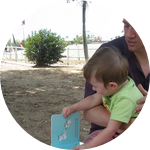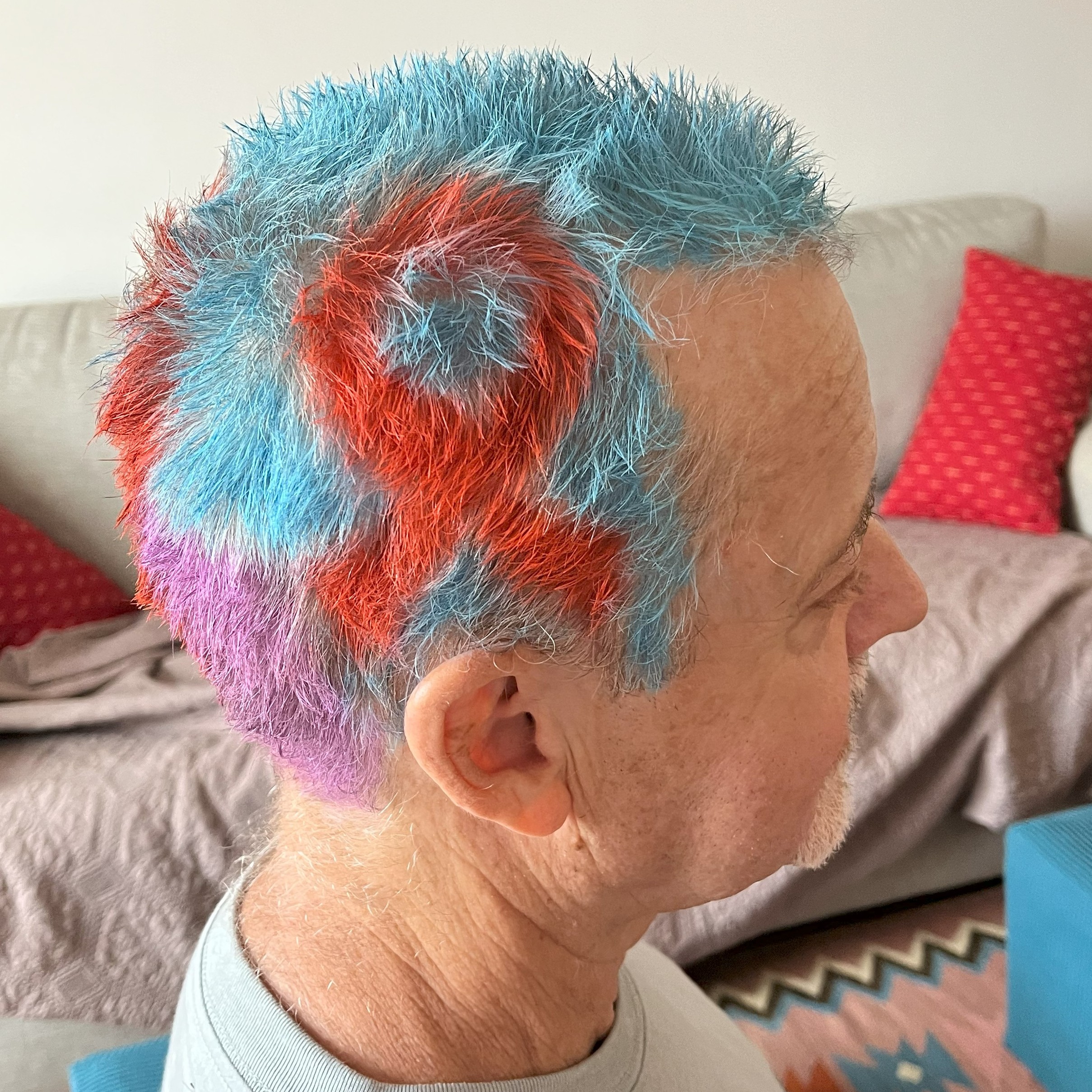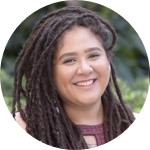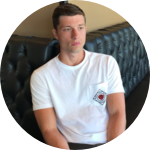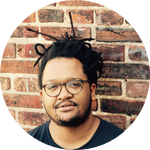About This Project
In Fall 2017, our undergraduate team completed the first student-led, crowd-source-funded urban ethnographic study; successfully recruiting and interviewing 329 opiate users about their overdose experiences in the South Bronx. More non-fatal overdoses in the last 12 months were reported by people who ‘look for’ fentanyl (15%) than those who said that they avoid it (70%). The ‘Fanteca Remix’ project will expand our team and examine non-fatal overdoses among 300 opiate users in Washington Heights.
Ask the Scientists
Join The DiscussionWhat is the context of this research?
Health Department data show that overdoses from heroin and other opiates continue to rise in NYC. But how accurate are their numbers? The state counts fatalities and people who end up in hospitals and emergency rooms, but they do not have a systematic way of counting overdoses that do not come to the attention of professionals, like EMTs or the police. The original Fanteca project found that nearly a third of opiate users (29%) reported having had a non-fatal overdose in the last year; and nearly as many (28%) said that they had administered Naloxone to someone else in the last year, including 18 users who said that they had administered 3 times or more. These cases almost certainly do not appear in official data and lead us to wonder about how many there actually were.
What is the significance of this project?
This project hopes to find new and innovative solutions to the opiate crisis. So far, there are no proven or effective methods to slow the progression of the current epidemic of opiate use, and that is one reason why this project -- unhindered by the agendas that limit many studies -- engages users with questions that probe their use of opiates and opiate substitution therapies that would likely never get asked in a government-sponsored study. The study also brings together novel constituencies to act as partners, particularly in the planning and analysis stages of the project, including leaders in law enforcement, students and activists in the field.
What are the goals of the project?
The goals are:
1) To recruit and interview 300 opiate users over 4 successive weekends at a location in Washington Heights, Manhattan, in the spring of 2018.
2) Estimate the number of opiate users in Washington Heights and describe the characteristics they share using a method of recruiting people called Respondent Driven Sampling.
3) To train the next generation of experts who will address the problem, undergraduate students who are largely drawn from the same neighborhoods where the study will take place are afforded the opportunity and support to learn about the problem. Armed with first-hand data they collect, they are at the cutting edge of fashioning data-driven responses to the problems.
Budget
The project will interview 50 people per day and will recruit them by using Respondent Driven Sampling: each respondent is paid $10 for completing a short interview, and then paid $5 for each of three eligible friends they recruit into the study. We use software that keeps track of numbered coupons that subjects give to their friends. Based on our experience, we anticipate that reaching our goal of 300 interviews will cost about $4,400.
The project needs to have harm reduction supplies, including "overdose kits" containing Naloxone, available for emergency situations and for participants to take with them when they leave. These will include items like sterile injection equipment, antiseptic and bandages.
To disseminate findings from Fall 2017 Fanteca project, the team will ask subjects at the end of each day to locate proposed policy recommendations and upload photos of them on social media sites. Those subjects who post photos first, will share a cash prize.
Endorsed by
 Project Timeline
Project Timeline
Feb 15, 2018
Train undergraduate students to interview opiate users the first month of the spring 2018 semester.
Mar 28, 2018
Project Launched
Apr 14, 2018
Begin to recruit and interview 300 opiate users in Washington Heights
May 13, 2018
End data collection
May 14, 2018
Begin data cleaning and analysis
Meet the Team
Affiliates
Affiliates
Affiliates
Affiliates
Ric Curtis
I've been a professor at John Jay College since the late 1980s. A former Chairman of the Anthropology Department, the Sociology Department, and the Department of Law, Police Science & Criminal Justice Administration, I also have a track record of working with drug users and sex workers. I am a founder and/or Board member of 4 non-profit "harm reduction" organizations in the NYC area, including Boom Health, Inc. in the Bronx, the After Hours Project, Inc. and Family Services Network of NY, Inc. in Brooklyn, and Community Action for Social Justice, Inc. in Long Island. Over the last few years, I've worked closely with St. Ann's Corner of Harm Reduction, Inc. in the South Bronx.
Popy Begum
Popy Begum is an Adjunct Lecturer at John Jay College, where she teaches international criminal justice, criminology, and research methodology courses. Previously, she has worked on Rikers Island and created individual discharge plans for incarcerated male and female, youth and adults who are at a high risk of reoffending, and counseled them about re-entry, including substance abuse issues. Popy earned a B.A. in international criminal justice from John Jay College, and an MSc in criminology and criminal justice research methods from Oxford University. Currently, she is a PhD Student at the School of Criminal Justice, Rutgers University and is generally interested in the intersection of race, gender, class and crime.
Anjelica Maria Camacho
Anjelica-Maria Camacho is a Research Corrdinator at the Research and Evaluation Center at John Jay College. Her previous work included projects on youth justice, drugs, gun-violence, and the intersection of crime and race. Anjelica graduated from John Jay with a Masters in Criminal Justice with dual concentrations in criminology & deviance and terrorism studies. She currently teaches Sex and Culture and Drug use and Abuse in the Anthropology Department at John Jay College.
Jessica Castillo
Jessica Castillo, Research Assistant, is currently in the CUNY Baccalaureate for Unique and Interdisciplinary Studies undergraduate program where her areas of concentration are International Criminology and Deviance in Social Behavior. She will be receiving her B.A. in the Spring of 2020. While attending John Jay College, she has been involved in an alternative to incarceration program called Bronx Connect and serves as an active, bilingual participant in the Manteca/Fanteca Research project. Jessica is interested in studying the causes of juvenile delinquency, the theoretical explanations for the aberrant criminal behaviors that are manifested in a population, and bringing about social and economic change for disadvantaged individuals.
Amanda Lombardo
Amanda is currently finishing up her senior year at John Jay College of Criminal Justice in hopes of attaining her BA in Culture and Deviant studies. Amanda shows interest in research and evaluation. She is passionate about helping people and plans to dedicate her life to the cause. She plans to help assist families who suffer from drug use, abuse, and conflict as a career goal post-graduation. Her experience includes nursing, counseling, management, and field study research. Amanda was an avid volunteer in the Fanteca Project held last fall 2017; where she and other students from her university interviewed heroin users in New York City's South Bronx for research. Amanda continues to want to help individuals with the heroin epidemic. With hopes of educating others about what serious concerns arise from her and her peer's findings.
Anthony Pishchulin
Anthony Pishchulin, Research Coordinator, Sophomore at John Jay College of Criminal Justice, majoring in Forensic Psychology. He is scheduled to graduate with a Bachelors in 2020 and is currently researching opioid addiction with the Spring 2018 Fanteca project as a research coordinator and research proposal team leader. Anthony is currently aspiring to enter a career in Federal Law Enforcement. He currently interns with Homeland Security Investigations and is in the process of becoming an NYPD cadet this summer.
Marcus Enfiajan
Marcus Enfiajan, Reaserch Coordinator, Sophnore at John Jay College of Criminal Justice, majoring in Forensic Psychology. He is scheduled to graduate with a Bachelors in 2020 and is currently reaserching opioid addiction with the Spring 2018 Fanteca project as a reaserch coordinator and Survey Development team leader. Marcus Enfiajan is currently aspiring to enter a career in Federal Law Enforcement. He currently interns with Homelands Security Investigations at Post 601.
Leonardo A. Dominguez Gomez
Leo Dominguez is a Research Analyst at the ISPH and Adjunct Lecturer at John Jay College of Criminal Justice. He is a trained Epidemiologist, his expertise includes survey design, statistical modeling, data management, and ethnography. Additionally, he has prior experience in recruiting hard to reach populations using respondent driven sampling in both urban and rural settings with heroin users. His subject matter expertise is in HIV, HCV, Substance use, and Harm reduction.
Luillys Francisco
Luillys Francisco is a student at John Jay College. He is currently pursuing a Police Studies Major. He participated in the Manteca/Fanteca Research project while taking Anthropology 110: Drug Use and Abuse in his spring semester. He is committed to memorializing the research project for future replication.
Lab Notes
Nothing posted yet.
Additional Information
Readers will notice that the video that we used for the Fanteca Remix project is the same one that we used for the original Fanteca project....largely because we are mostly doing the same project, though in a different location. We strongly urge readers to visit the original "Fanteca" project on Experiment.com and read the Additional Info section. There, you will learn about the unusual history of the project and our efforts to fashion solutions to the opiate crisis. You will also see the "fieldnote" videos from the fall that show our students collecting data in the South Bronx, and have the opportunity to download our final report from the last year.
Also of interest is the podcast from NPR, Latino-USA, in February 2018, that features our team working at The Hole in the South Bronx. This was the project that led to the Fanteca project. NPR has continued to track the progress of the Fanteca project and may feature it in another podcast.
Project Backers
- 18Backers
- 30%Funded
- $1,708Total Donations
- $94.89Average Donation
